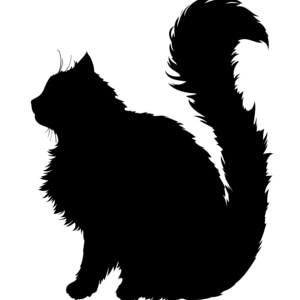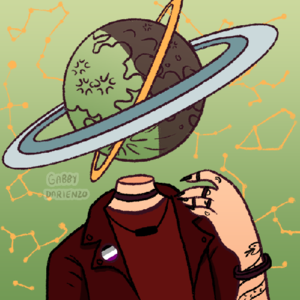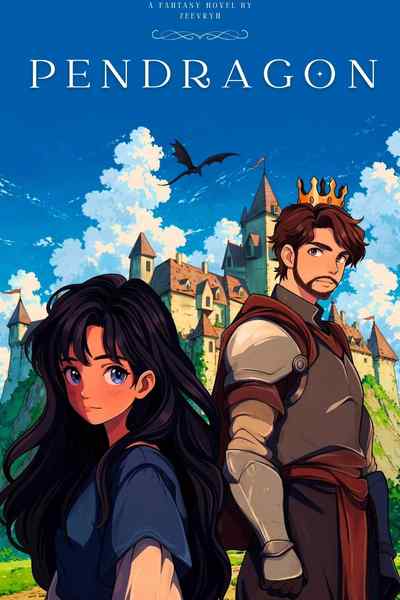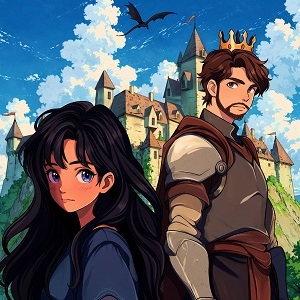But in the meantime, here in the library, the scholar laughed again at my description of Breone’s abilities, then picked up his book and came to sit closer, giving me a tentatively warm smile. “I’m Glais, one of the scholars here. Scholars are an odd bunch, really. We’re not nobles, but we’re not commoners either. Yet those of us who aren’t at university or in monasteries help serve nobles. Our standing is somewhat unclear, because people recognize that our education is worthy of respect, I guess, but at the same time, few of us are actual nobles.” He looked at me curiously. “Do you plan to become a scholar? Formally, that is?”
“Not exactly, it’s more of a hobby.” I was curious, though, about what he did. “So what’s your job here?”
“Several things, but my big one is maps.” He sounded almost proud, and got up to show me his work. I followed him to a large table where he had several large pieces of paper carefully laid out. “I’m not an explorer, I don’t map the lands myself, but I’m good at reproducing them. The king has commissioned me to copy known maps we currently have, to make sure that in case something happens to one, we still have a copy, and he also wants certain nobles to have copies of maps related to their areas as well. Map-making can be very time-consuming.” He held up the book he’d been reading. “I am using more than the official maps. I’m marking areas known for historical events or large populations of elk, for instance. Something that could be helpful for the nobles to know is in their area.”
It sounded interesting, but also potentially concerning if he was drawing where Arcane lived. I looked at the top map, and sure enough, there was good reason to be concerned.
“Siren sightings, huh,” I murmured.
“Oh? Yes, there have been several along that coastline there. Mostly fishermen’s stories,” he admitted, “but there’ve been enough that I figured it was worth marking, so ships know to avoid that area.”
“Is that all?” When he seemed puzzled, I sighed a little internally. “You’re focused on accuracy. I appreciate that. But are you fully prepared for the consequences of marking the location of Arcane on the maps you are making? What happens if the local nobles have similar approaches to Arcane as Uther? What happens if the local fishermen realize that they’re not the only ones who saw sirens and band together to turn it into a hunting party?”
He looked troubled. “I – well, that’s a risk, I suppose, but Arthur doesn’t condone killing of Arcane like Uther did, so it shouldn’t happen, right? And isn’t it good to warn the fishermen so they know to avoid that area? So they don’t sink their ships?”
He had a point, too. “I suppose both sides have concerns. Of course, it would be easier if Arcane and human could coexist without having to be afraid of each other.” I touched the point on the map where the sirens were marked, still concerned. Would it be worthwhile attempting to warn them?
“Would you rather I redid it without that?” His tone was serious, and when I looked at him in surprise, not expecting him to offer to throw away hours, possibly days, of work for a worry I had – that he legitimately thought should be concerned – he gave me a kind of sad smile.
“Our world is torn,” he said quietly. “I’ve watched mostly from the sidelines. In my early days at university, I was sent to document some of Uther’s actions, some of which involved, well, for lack of better words for it, slaughter of Arcane. I’ve seen Arcane fight back, fiercely, but more often I see them trying to run, and Uther was – Uther thought that was sport.” He sounded almost bitter. “Documenting those events for posterity was not fun, and even harder to do so as neutrally as possible. I wanted to say the truth about the king in what I wrote, but how can you when the king is the one paying your salary? You have to present him in a kind light. Even if it’s untrue.” He hesitated, then went over to his desk and showed me a stack of papers. “I’ve been working on rewriting everything I personally witnessed, from what I consider a more true point of view. I haven’t offered it to Arthur, because while I know he and his father had their issues, it is one thing to disagree with him and another entirely to allow him to be portrayed as…as a monster.”
“Except one is true and one is not.” I eyed the stack of papers thoughtfully. “If you don’t tell Arthur, what do you intend to do with it?”
He shrugged. “Hide it away, I guess? Try to make sure it’s preserved somehow, so just in case, someone in the future can know the truth. I don’t want Uther’s version to be the only one out there. There needs to be someone showing what actually happened.”
So, he wasn’t Arcane, and it didn’t sound like he’d had much contact with Arcane, but he could recognize Uther’s actions for what they were. Genocide. Cruelty. An attack on an entire people for no reason but their own existence.
“Why did he hate Arcane so much, I wonder?” I hadn’t really meant to say it out loud, but Glais walked over to some of the shelves, looking through the books until he found what he wanted, then brought me a book which he flipped through and then set down on his desk, open to a particular page.
“As a child, Uther witnessed a revolt by Arcane. The revolt stemmed from certain Arcane agreeing to give up their land to the king, in exchange for gaining new land elsewhere. However, the king was quick to take their land, but slow to give up the land they were supposed to be getting, so they found themselves homeless, with ever-empty promises that the king was working on moving the current residents and dealing with certain paperwork issues. Always excuses, always pushing them off. They grew tired of it and revolted, and Uther saw the results. They didn’t harm him, or any of the civilians, but he saw knights and soldiers dead in the courtyards of the then-king’s court, and according to official accounts, everything changed after that. His instructors and caretakers talk about how he changed almost overnight to a boy with a burning vendetta, wanting to see all Arcane perish.”
He frowned at the sketch someone had made on the page, an image of bodies and buildings burning. “Make no mistake, the revolt was serious. While they left the civilians alone, they killed an entire company of soldiers, almost a quarter of the king’s knights, and destroyed the crops and buildings in the area – the area where they had once owned, the land they had essentially been cheated out of. In their mind, it was their land until the king gave them the other land, so they had the right to destroy the new buildings and crops. To Uther’s father, it was a serious blow. Plus, they didn’t stop there. Following that, there were blights on crops in other places, enough that they suspected magic. Uther’s father faced a winter with barely enough food, refugees who flocked to Camelot because they had lost their housing, and sickness from people crowded into the towns without enough food. It was a bad time for humans. The Arcane who revolted said Uther’s father deserved it, and it was on his head, but the repercussions were severe enough they lost much of the support they’d had before that. Almost the entire country was so badly affected that it took years for towns to recover.”
He flipped the page. “To get peace and stop to recover, Uther’s father, Evrain Blackwood, finally gave up the land he’d promised the Arcane. They stopped their revolt, content, but relationships were permanently chilled. And Uther, he was a child during all of this. He witnessed violence before him and saw people he knew die. It made its mark, and after that he was a sworn hater of Arcane. He saw all Arcane as responsible for that revolt and refused to admit the wrongdoing of his own father that had played a part in the revolt.”
Glais sighed. “History is complicated. There is often no one correct or wrong side – in this case, Evrain certainly started the revolt, and while initially the Arcane left civilians alone, their actions ultimately hurt a lot of innocent people, some of which died in the aftermath. I suppose they likely went too far, but to fight against a king who wasn’t willing to do what he’d promised – what options did they actually have? You can’t bring a king to court and get a judge to force him to do what he promised. I suppose I view the blame as more Evrain’s than the Arcane, even if they did go too far. But at the end of the day, both sides were hurt, and both nurtured resentment for what happened. The Arcane didn’t forget that the king hadn’t done and couldn’t be trusted in the future to do what he promised, and they viewed humans as being unreliable and untrustworthy. Meanwhile, humans viewed Arcane as unstable and prone to violence and destruction. A terrible situation that might have been remedied by a king who was sensitive to the situation and wanted to resolve it, but Evrain was often too focused on buying luxuries and living the life of a king than on truly holding up to the responsibilities of a king. That, perhaps, is why Uther was known to be rather frugal – he was reacting against the excesses he saw in his father’s court. It may have also fueled his desire to crush the Arcane, because as he saw it, the Arcane committed crimes and got away with it. His father did nothing to punish them, and instead bent to their will.”
“And so when he became king, he embarked on a reign of blood on all Arcane,” I murmured. “He saw it as justified, a way to protect his kingdom.”
Glais sighed again. “Uther was not a kind man, nor would I call him a good one. He didn’t set out to be evil, and I don’t know that I would call him truly evil, although I suppose the Arcane would and I couldn’t even fault them for that. He was a stubborn man, and a proud one. He couldn’t admit when he was wrong, and few people were ever willing to challenge him. Arthur was one of the few, and only because he knew Uther wouldn’t kill him. Even if Uther outright hated him at times, Uther cared too much about having his bloodline persist to actually kill Arthur.”
“Genevieve said something to that effect.” I looked down at the book, where a miniaturized portrait of a child Uther and his parents was reproduced. Uther looked like an angry, sour child there. It must have been after the revolt. “It seems quite a life for a young boy, to decide to be the only voice of reason against a king, all because he knows – or believes, at least – that the king won’t actually kill him.”
“Agreed.” Glais’s tone was fervent. “I cannot imagine it myself, I think I would be afraid at some times that he would have gotten angry enough to actually kill me, bloodline or no, if I had been in Arthur’s shoes. There were times in the court he was so angry, all of the nobles were practically frozen, and yet Arthur was there, still standing up to him, refusing to back down. Our new king has a strong backbone,” he said, admiringly. “Of course, he’s one of the best knights our kingdom has ever seen, which might help. But he’s also much more temperate than Uther – we rarely see him fly into fits of rage, for instance. He’s managed to avoid the vices of both his grandfather and father. I suppose he will have his own that we will discover in time, but I am hopeful for a better land under his reign.”
Arthur wasn’t proud like his father, either. A bit, perhaps, and perhaps not entirely a bad thing as a king to hold some pride in himself, but he also wasn’t so proud he couldn’t admit he was wrong and apologize.
We both paused as Breone hopped onto the desk, walked across the book, and started sniffing at an empty inkwell.
“Perhaps we should make sure ink isn’t left unattended,” Glais muttered to himself. “Imagine the damage he could cause if he knocked some over.”
Fair. Breone seemed like the kind of cat who would knock over a full inkwell, walk through the ink, get freaked out by the stuff on his paws, and make a mad dash around the library, getting ink everywhere in the process. Yep, on second thought, maybe the library was a bad place for Breone. Some of the other cats might be great in here, and Breone was good about killing mice, but he was basically chaos waiting to happen.












Comments (10)
See all